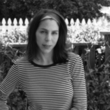Red clocks: a novel
Description
More Details
9780316434805
9781549116353
Similar Titles From NoveList
Similar Authors From NoveList
Published Reviews
Booklist Review
*Starred Review* Imagine a world in which Roe v. Wade has been overturned, and you have the premise of Zumas' shattering new novel in which abortion seekers are charged with conspiracy to commit murder, and abortion providers with second-degree murder. The novel introduces four women whose interconnected lives are negatively impacted by the new law. There is Ro, an unmarried high-school teacher desperate to be a mother before a law forbidding single people to adopt goes into effect; her 15-year-old student Mattie, who is pregnant and equally desperate, but for an abortion; Gin, an herbalist, regarded locally as a witch, whose herbs are believed to have the power to terminate pregnancy; and Susan, who, with two children, is trapped in a loveless marriage but feels herself too weak to end it. With its strong point of view, the novel, in lesser hands, might have been reduced to agitprop, but Zumas has raised it, instead, to the level of literature, which readers will find deeply moving. The characters are beautifully realized, inviting empathy and understanding; the richly realized plot is compulsively readable, and the theme, with its echoes of Margaret Atwood, is never didactic but invites thought and discussion. The result is powerful and timely.--Cart, Michael Copyright 2017 Booklist
Publisher's Weekly Review
Zumas (The Listeners) imagines a palpable, powerful alternate reality in which the United States has passed the Personhood amendment, reversing Roe v. Wade and making abortion a crime. Four women whose futures changed overnight with the passage of the amendment struggle for equality in rural Oregon. Roberta Stephens has chosen to pursue a teaching career and faces an uphill battle to have a child in an oppressively gendered system while writing a biography of an obscure female polar explorer named Eivor Minervudottir. Roberta's star pupil is high school student Mattie Quarles, who, finding herself pregnant, makes a run for the Canadian border. Susan Korsmo, the wife of one of Roberta's colleagues, is quietly suffocating as an overburdened mother of two. Finally there is Gin Percival, a forest-dwelling "mender" providing illegal gynecological services until she is arrested for medical malpractice. As Gin's court proceedings devolve into a modern-day witch trial, the fates of these women converge-with parallels to the life of Eivor-as they are pushed into a series of bold challenges to the masculine power structures that stifle them. Zumas manages a loose yet consistently engaging tone as she illustrates the extent to which the self-image of modern women is shaped by marriage, career, or motherhood. Dark humor further enhances the novel, making this a thoroughly affecting and memorable political parable. (Jan.) © Copyright PWxyz, LLC. All rights reserved.
Library Journal Review
Zumas's second novel (after The Listeners) presents a not-so-distant future where women's reproductive rights have been denied again. In this future, the passage of the Personhood Amendment has overturned Roe v. Wade, establishing every embryo or fetus as a person possessing all the rights (and thus protections) experienced by the rest of the U.S. citizenry. The narrative follows four women residing in a small coastal Oregon town, each struggling to forge an identity while facing pervasive misogyny. The author amplifies the debate about women's rights by referring to each woman by a noun rather than their proper names. The Mender, the Biographer, the Daughter, and the Wife alternately reveal their -intertwined stories. Ro, the Biographer, is also writing a book about the exploits of Eivor, a 19th-century female polar explorer who share these struggles for women's rights to be recognized as legitimate. In language both poetic and political, Zumas presents characters who are strong and determined; each is an individual in her own right. -VERDICT Inevitably, there will be comparisons to Margaret Atwood's The Handmaid's Tale, but Zumas's work is not nearly as dystopic or futuristic, only serving to make it that much more believable. Highly recommended. [See Prepub Alert, 7/31/17.]-Faye Chadwell, Oregon State Univ., Corvallis © Copyright 2017. Library Journals LLC, a wholly owned subsidiary of Media Source, Inc. No redistribution permitted.
Kirkus Book Review
The lives of five women in a small Oregon town are affected by the outlawing of abortion and an imminent ban on single parenthood.A billboard on the highway to Canada reads, "WON'T STOP ONE, / WON'T START ONE. / CANADA UPHOLDS U.S. LAW!" After the Personhood Amendment grants rights to embryos, the U.S.-Canadian border becomes a "Pink Wall." Women crossing to seek pregnancy terminations or in vitro fertilizations are returned to the U.S. for prosecution. Following the current fashion for braided narratives, this story is told from five perspectives. Ro, whose chapters are labeled "The Biographer," is a single high school teacher who's trying desperately to get pregnant before single parenthood is outlawed. Mattie, "The Daughter," is an academically gifted teenager whose best friend is already in juvenile jail for attempting a home abortion. Now she too is pregnant, and desperate. Susan, "The Wife," is married to another teacher at the high school, miserable with him and with domestic life in general. She and the Biographer are competitive frenemies who misunderstand and resent each other even as they regularly socialize. Gin, "The Mender," is a natural healer who lives in the woods, an underground provider of herbal abortions, in more danger from the new laws than she realizes. Finally, Eivr Minervudottir is a (fictional) 19th-century explorer of the North Pole, the subject of the Biographer's work. Her sections are brief avant-garde flashes that include recipes for cooking puffin and pilot whale and crossed-out lines revealing the Biographer's process. The other four characters are entangled in complicated, trickily unfolding ways, as is usual in this type of fractured narrative. Zumas (The Listener, 2012, etc.) is a lyrical polymath of a writer: she loves wordplay and foreign terms, she has an ear for dialogue, and she knows an impressive amount about herbal healing, Arctic exploration, and the part of the U.S. her story is set in, its "dark hills dense with hemlock, fir, and spruce," its "fog-smoked evergreen mountains, thousand-foot cliffs plunging straight down to the sea."A good story energized by a timely premise but perhaps a bit heavy on the literary effects. Copyright Kirkus Reviews, used with permission.
Booklist Reviews
*Starred Review* Imagine a world in which Roe v. Wade has been overturned, and you have the premise of Zumas' shattering new novel in which abortion seekers are charged with conspiracy to commit murder, and abortion providers with second-degree murder. The novel introduces four women whose interconnected lives are negatively impacted by the new law. There is Ro, an unmarried high-school teacher desperate to be a mother before a law forbidding single people to adopt goes into effect; her 15-year-old student Mattie, who is pregnant and equally desperate, but for an abortion; Gin, an herbalist, regarded locally as a witch, whose herbs are believed to have the power to terminate pregnancy; and Susan, who, with two children, is trapped in a loveless marriage but feels herself too weak to end it. With its strong point of view, the novel, in lesser hands, might have been reduced to agitprop, but Zumas has raised it, instead, to the level of literature, which readers will find deeply moving. The characters are beautifully realized, inviting empathy and understanding; the richly realized plot is compulsively readable, and the theme, with its echoes of Margaret Atwood, is never didactic but invites thought and discussion. The result is powerful and timely. Copyright 2017 Booklist Reviews.
Library Journal Reviews
In this work, billed as a Handmaid's Tale for the new millennium, women in an Oregon fishing town struggle with issues of freedom and identity in a grave new world where abortion and in vitro fertilization are banned. Single-mother Ro wants a baby, talented student Mattie is pregnant without recourse, mother-of-two Susan faces a failing marriage, and Gin brings the plot together when she's arrested for practicing homeopathy. With a 50,000-copy first printing.
Copyright 2017 Library Journal.Library Journal Reviews
Zumas's second novel (after The Listeners) presents a not-so-distant future where women's reproductive rights have been denied again. In this future, the passage of the Personhood Amendment has overturned Roe v. Wade, establishing every embryo or fetus as a person possessing all the rights (and thus protections) experienced by the rest of the U.S. citizenry. The narrative follows four women residing in a small coastal Oregon town, each struggling to forge an identity while facing pervasive misogyny. The author amplifies the debate about women's rights by referring to each woman by a noun rather than their proper names. The Mender, the Biographer, the Daughter, and the Wife alternately reveal their intertwined stories. Ro, the Biographer, is also writing a book about the exploits of Eivør, a 19th-century female polar explorer who share these struggles for women's rights to be recognized as legitimate. In language both poetic and political, Zumas presents characters who are strong and determined; each is an individual in her own right. VERDICT Inevitably, there will be comparisons to Margaret Atwood's The Handmaid's Tale, but Zumas's work is not nearly as dystopic or futuristic, only serving to make it that much more believable. Highly recommended. [See Prepub Alert, 7/31/17.]—Faye Chadwell, Oregon State Univ., Corvallis
Copyright 2017 Library Journal.Publishers Weekly Reviews
Zumas (The Listeners) imagines a palpable, powerful alternate reality in which the United States has passed the Personhood amendment, reversing Roe v. Wade and making abortion a crime. Four women whose futures changed overnight with the passage of the amendment struggle for equality in rural Oregon. Roberta Stephens has chosen to pursue a teaching career and faces an uphill battle to have a child in an oppressively gendered system while writing a biography of an obscure female polar explorer named Eivør Minervudottir. Roberta's star pupil is high school student Mattie Quarles, who, finding herself pregnant, makes a run for the Canadian border. Susan Korsmo, the wife of one of Roberta's colleagues, is quietly suffocating as an overburdened mother of two. Finally there is Gin Percival, a forest-dwelling "mender" providing illegal gynecological services until she is arrested for medical malpractice. As Gin's court proceedings devolve into a modern-day witch trial, the fates of these women converge—with parallels to the life of Eivør—as they are pushed into a series of bold challenges to the masculine power structures that stifle them. Zumas manages a loose yet consistently engaging tone as she illustrates the extent to which the self-image of modern women is shaped by marriage, career, or motherhood. Dark humor further enhances the novel, making this a thoroughly affecting and memorable political parable. (Jan.)
Copyright 2017 Publishers Weekly.
































